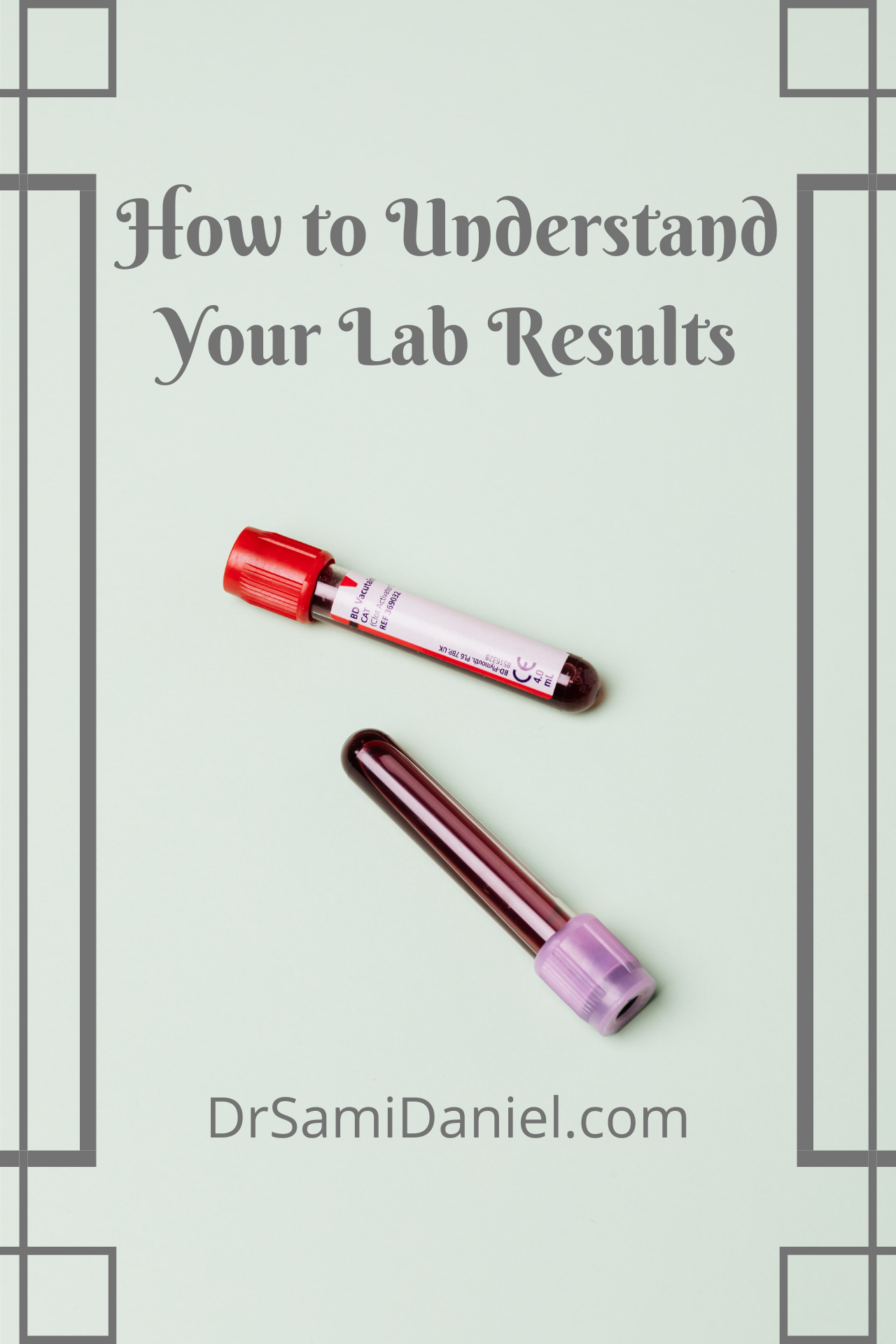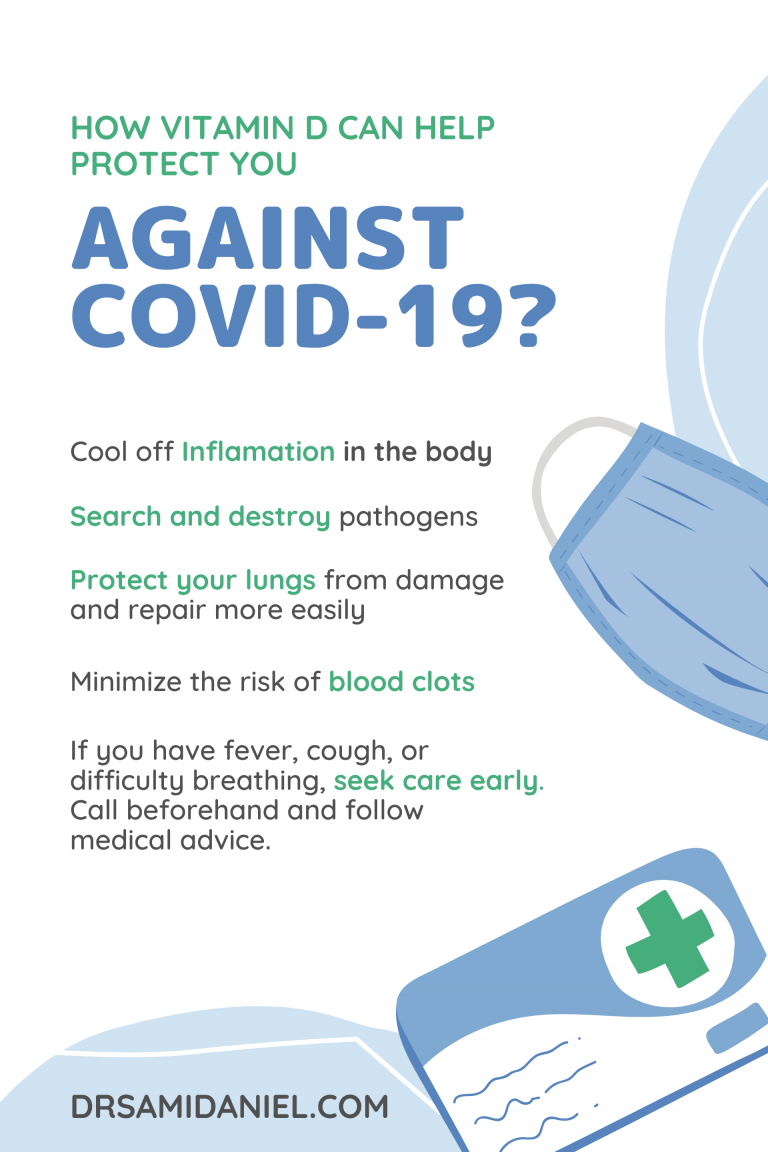How to Understand Your Lab Results
Your Doctor may order blood work.
You get your blood drawn by the nurse or phlebotomist (the person that draws blood into those test tubes), and wait 2-3 days for the results.
The long-awaited results come, but the results seem confusing.
What are all these acronyms? And what’s a reference range? Are my results normal?
You patiently wait AGAIN for your Doctor’s appointment to explain the results to you.
The day finally arrives. You talk with your Doctor to understand the results and what they mean.
But you walk away feeling unsatisfied, bewildered, and with more questions than before.
Let’s learn how to read and understand your lab results.
This way, you can have an educated discussion with your Doctor and take control of your health.
What are acronyms?
There are a lot of letters on your lab results.
These letters are more accurately known as initialisms.
A bunch of random letters strung together which does not form another word.
CBC, CMP, FLP, and TSH mean absolutely nothing unless you know what these letters stand for.
- CBC – Complete Blood Count
- CMP – Comprehensive Metabolic Panel
- FLP – Fasting Lipid Panel
- TSH – Thyroid Stimulating Hormone
Did that help? Probably not. Because even though the words sound like English, most people have no idea what each of these tests measure or why it matters.
So let’s look at them and get a brief understanding of each test.
CBC – Complete Blood Count
A CBC measures:
- White blood cells (WBC) – Your immune system
- Red blood cells (RBC) – The cells that carry oxygen and nutrients throughout your body
- Hemoglobin (Hgb) – The molecule your red blood cells use to transport oxygen
- Hematocrit (Hct) – The thickness of your blood (Think of the difference between water and maple syrup)
- Platelets (Plt) – The stuff that helps stop bleeding when you cut yourself
- Other things which differentiates all the different kinds of white blood cells
This information allows the doctor to know if there’s any infection or anemia.
If there is an infection the next step is to determine what kind and how to treat it.
If there is an anemia the next step is to determine the cause.
CMP – Comprehensive Metabolic Panel
The CMP measures three main things:
- Electrolytes – sodium, potassium, and chloride are all measured. The body uses these electrolytes to maintain hydration and electrical activity. Too much or too little of any electrolyte will upset this balance and cause problems.
- Kidney function – Blood Urea Nitrogen (BUN), Glomerular Filtration Rate (GFR), and Creatinine (Cr) help to determine kidney function. Your kidneys are responsible for keeping those electrolytes in balance as well as maintaining proper hydration of the body.
- Liver function – Alanine Transaminase (ALT), Aspartate Aminotransferase (AST), Alkaline Phosphatase (Alk Phos) are all different types of enzymes found in the liver. If one or more are too high, this could indicate various problems like infection or intoxication to name a couple examples.
FLP – Fasting Lipid Panel
The lipid panel needs to be done fasting because eating within 8 hours of the test will directly impact the results.
Eating can cause your cholesterol levels to spike. So fasting for 8 hours allows the levels of cholesterol to return to normal. If they do not return to normal, then your Doctor likely needs to speak with you.
Fasting lipid panel measures 4 main things:
- Total cholesterol level – Which is the overall cholesterol level in the body.
- Triglycerides – This is especially prone to increase right after eating. People with a diet high in carbohydrates will actually see high triglyceride levels.
- LDL – More commonly known as the “bad” cholesterol. No cholesterol molecule is inherently “bad”. However researchers have found an association with LDL cholesterol and risk for cardiovascular disease which can lead to heart attack and stroke.
- HDL – More commonly known as the “good” cholesterol. Again, no cholesterol type is inherently “good” or “bad”. However researchers have found a protective benefit of HDL cholesterol.
TSH – Thyroid Stimulating Hormone
The thyroid gland essentially orchestrates the rate of metabolism.
The thyroid does this by carefully creating thyroid hormones, T3 and T4, so that the cells of the body can run their metabolism in the most efficient way possible.
But what tells the thyroid gland when there is too much or too little thyroid hormone?
A part of the brain produces another hormone called the Thyroid Stimulating Hormone. The brain uses this hormone to stimulate the thyroid gland so that it regulates the metabolism perfectly.
If there is too much or too little, this can cause problems. Or it can be the cause of a problem in itself.
Therefore the Doctor must speak with you to determine cause and/or effect.
What are reference ranges?
Reference ranges are like guide rails on a road.
They helped us know where the side of the road is so that we can stay on course.
But every test is different.
Sodium it needs to stay between 135 to 145 mEq/L.
Potassium needs to stay between 3.5 to 5.0 mmol/L.
Red blood cells range is between 4.7 to 6.1 million cells/mcL in males and 4.2 to 5.4 million cells/mcL in females.
Glomerular filtration rate 90 and 120 mL/min/1.73 m2.
With all these different ranges for different tests, how are the guide rails decided? Who defines the road? How do we know we’re still on the right path?
This is where statistics comes in. They found the average range typically found in a human being.
There is some difference in averages between males and females and even amongst different races.
But people generally average into these ranges.
Are my labs normal?
It’s a weird thing. Sometimes lab results can be abnormal even though they are within the guide rails.
And sometimes lab results can be normal even if they are outside the guide rails.
You will have to speak with your Doctor because lab results need to be taken in context of the big picture.
Your Doctor decided to order those labs for a reason. That means there was something, or many somethings, beyond the lab test that your Doctor was trying to investigate.
Doctors use blood work to help clarify a suspected problem.
Or, in the case of a routine check up, blood work is used to monitor your health status and ensure no problem has developed.
So are your labs normal? Only your Doctor knows your medical history and therefore he/she is best suited to answer that question.
So be sure to voice your concerns to your Doctor.
Conclusion
Lab results are not that confusing. Just mired in mystery for some reason.
Hopefully this article has shed a little light on a few kinds of lab tests and allows you to talk with your Doctor in more depth about your results.







